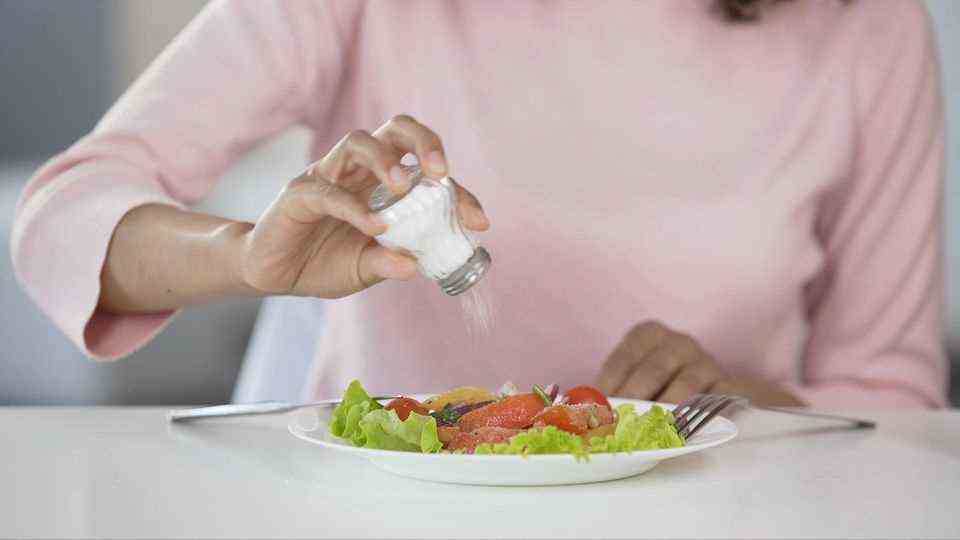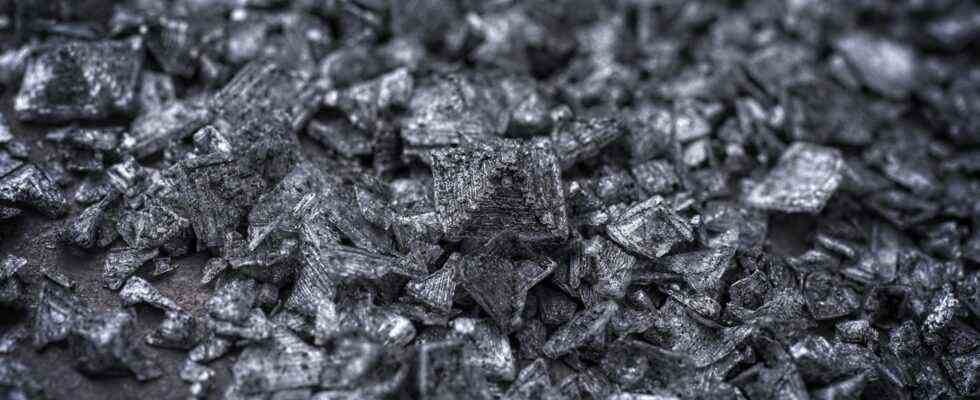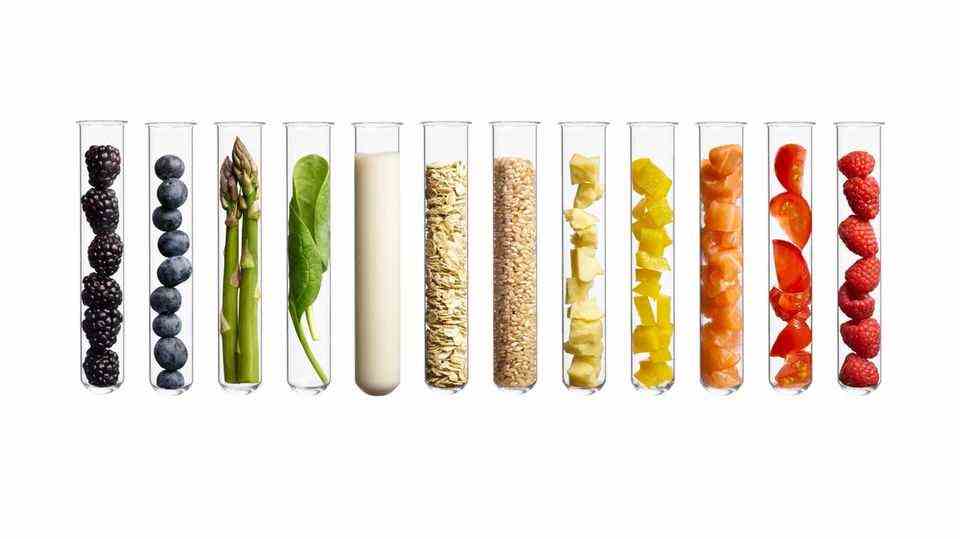Less sodium
Too much salt is unhealthy, but hardly anyone wants to do without it – a new mixture could be the solution
Pyramid salt flakes in close-up: Whether gourmet or not, consuming too much salt can make you sick.
© H.LEITNER / Picture Alliance
People love salt. So much so that they eat more of it than is good for the body. This can have serious health consequences. A dilemma. Low-sodium salt could be a solution, a study shows.
Salt is vital. Among other things, it ensures that the body’s water balance is regulated and is important for digestion. However, consuming too much salt can be harmful, cause high blood pressure and increase the risk of cardiovascular disease. Life-threatening diseases such as heart attacks, strokes and kidney failure can result. It is estimated that 1.6 million people will die from excessive salt consumption this year alone.
It has long been known that salt should be consumed in moderation. But that has hardly changed anything in terms of the seasoning behavior. The salt, it is and remains the standard in food. So what to do A research group from the George Institute for Global Health in China is now showing an alternative. If people don’t want to change their eating habits, why not change something about the salt itself?
Is Low Sodium Salt an Alternative?
In a study, the scientists investigated the impact that switching from conventional table salt to low-sodium salt has on health. Table salt consists of the minerals sodium and chloride. To make low-sodium salt, some of the sodium is replaced with potassium. The salts taste similar and can be used like normal salt. This combination, as the study results published in the “New England Journal of Medicine” suggest, can have significantly positive health effects.
About 21,000 people from 600 Chinese villages took part in the study, and the study was carried out over a period of five years. All study participants had either had a stroke or were at least 60 years old and had high blood pressure. Half of the subjects continued to consume salt as before, the other half received one in which a quarter of the sodium chloride had been replaced with potassium chloride.
According to the study results, low-sodium salts reduced the risk of death by 12 percent, the risk of cardiovascular disease such as heart attack or stroke was reduced by 13 percent. The investigation underpins the results of a previous model study. At that time, the scientists came to the conclusion that salt substitutes could save more than 460,000 lives across China every year.
Salt consumption is too high
“It has been known for decades that too much salt damages blood vessels and organs,” said health expert Karl Lauterbach on Twitter. Lowering salt consumption in food would also be a task for a minister of agriculture, he comments. “In this way you can prevent thousands of strokes per year without much effort.”
As early as 2013, the WHO member countries set themselves the goal of reducing salt consumption. A per capita reduction of 30 percent by 2025 was targeted. Many years have passed since then, but nothing major has changed. Per capita consumption should have decreased by 2.4 percent annually, but according to the Nutrition Report 2020 it was only 0.2 percent.

Six grams a day, an adult should not consume more salt, according to the recommendation of the German Nutrition Society (DGE). The World Health Organization (WHO) has even set the limit at a maximum of five grams per day. However, a look at the numbers shows that this is not that easy to implement.
According to an evaluation by the German Adult Health Survey, women in Germany get 8.4 grams and men even 10 grams per day. According to this, 50 percent of men and 38.5 percent of women even consume more than 10 grams of salt per day and are thus far above the recommendations. According to the DGE, a large part of the salt intake can be traced back to artisanal or industrially produced foods and dishes.



